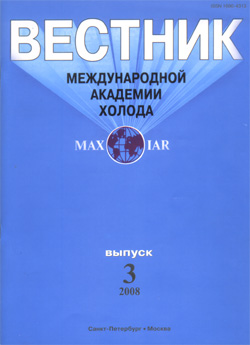
Innovative technology of canned pear compote for baby food

Annotation
The article deals with the usefulness of microwave pre-heating of fruits in jars, instead of conventional blanching, in the manufacturing of pear compote for baby food. The experimental results of fruit warming in 0.2, 0.35 and 0.5 liter jars for 45, 60 and 90 sec. are given. The jars, filled with fruits and syrup, are heated up to 80-85 deg C in electromagnetic field of 2400 МHz for 0.5-2 min. This allows enzymes to be inactivated, biologically active components to be preserved, and the initial product temperature before sterilization to be increased by 30 deg C. Temperature is measured at the least warmed points of experimental and reference samples. Pre-heating of fruits in SHF electromagnetic field results in processing time decreasing by more than 30 min. and uniform fruits warming throughout the jar. The sterilizing effect values of central and peripheral points prove the mode chosen to meet all the criteria of commercial sterility, microbial safety and foodstuff quality. The results of the research are of great prospect for baby food development.
Keywords
Постоянный URL
Articles in current issue
- Impact of saccharification method on barley mash fermentation parameters and quality of fermented mash
- Innovative technology of canned pear compote for baby food
- The use of transglutaminase in milk processing
- The optimization of fish-plant snacks formula
- Study of the process of freezing and thawing out of the fruit juices
- Experimental research of refrigerating system effective radiation into space
- Exergetic analysis of LNG regasification techniques
- Background for the use of gas-static bearings in screw compressors
- Organizational aspects of red blood cells cryopreservation in the activities of blood service in Russian Federation
- The use of axial-radial impellers in halocarbon refrigeration centrifugal compressors
- Pilot study of Ekokhol 1 ozone-safe mix with the use of mineral refrigerating oil
- Generalization of data on second virial coefficient of methane and its fluoroderivatives
- Optimization of parameters of process of receiving biofuel by methods of mathematical modeling
- Thermal conductivity of mixtures of the rarefied gaseous hydrofluorocarbons
- Measurement of polymeric composite materials radiation coefficient
- Tendencies and dynamic of non-liner climatic changes under the influence of solar constant and Bond's albedo long-term variations
